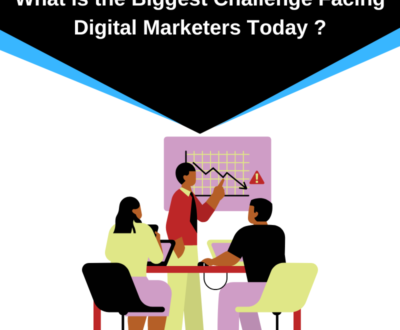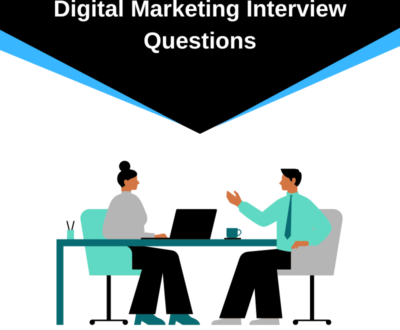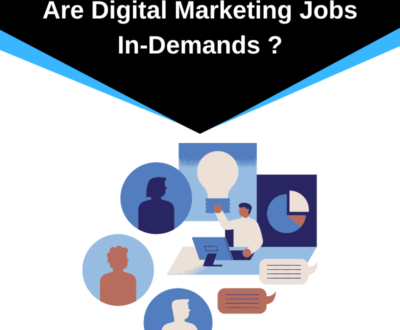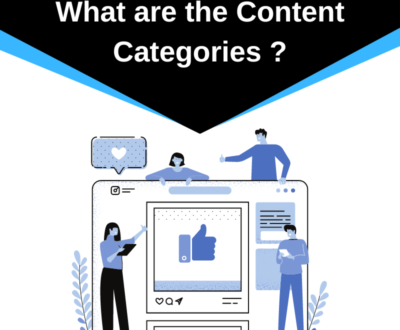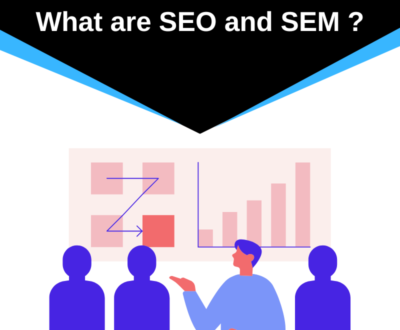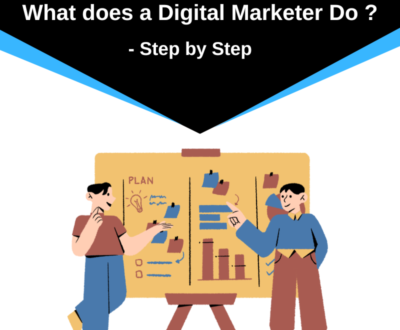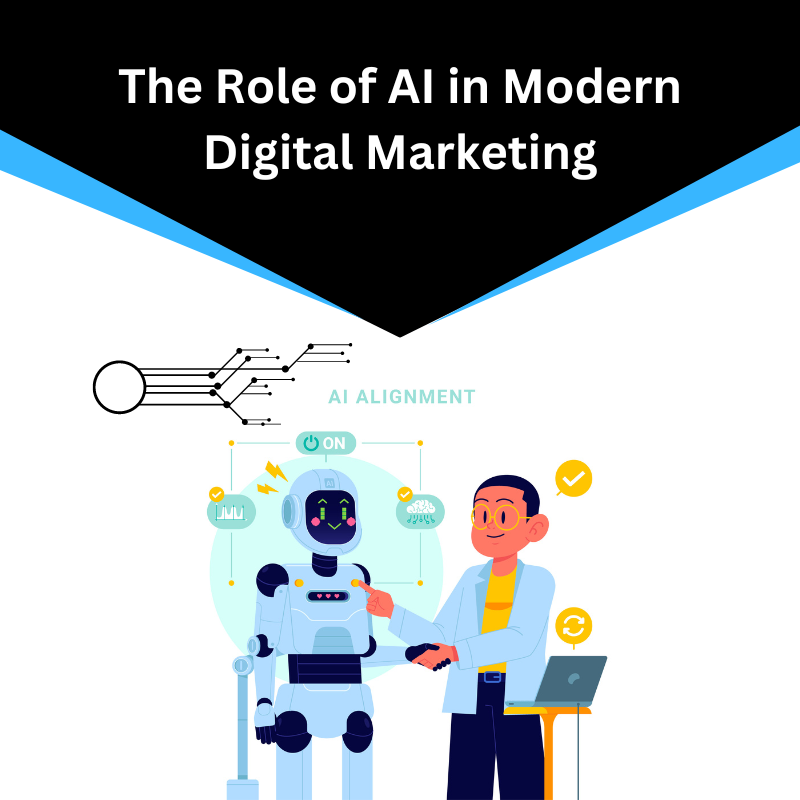
In today’s fast-paced Digital Landscape, Artificial Intelligence (AI) is transforming how businesses approach marketing. By leveraging AI, companies can enhance customer experiences, optimize campaigns, and gain insights that were previously unimaginable. This blog explores the various roles AI plays in modern digital marketing, its benefits, challenges, and future implications.
1. Introduction to AI in Digital Marketing
In today’s fast-paced Digital world, businesses are always looking for ways to connect with their customers more effectively. This is where Artificial Intelligence (AI) comes in. Think of AI as a helpful assistant that can analyze vast amounts of data quickly and provide insights that humans might overlook.
Imagine being able to predict what your customers want before they even know it themselves! AI can help analyze user behavior, preferences, and trends, allowing marketers to tailor their strategies and deliver personalized experiences. Whether it’s through targeted ads, chatbots for instant customer service, or content recommendations, AI is transforming how brands interact with their audiences.
Moreover, AI tools can automate repetitive tasks, freeing up time for marketers to focus on creative strategies. This means more engaging campaigns and less time spent on manual data entry or reporting.
In short, AI isn’t just a buzzword in digital marketing; it’s a Game Changer that empowers businesses to connect with their customers in smarter, more meaningful ways. Embracing AI can lead to improved customer satisfaction, increased sales, and a stronger brand presence in an increasingly competitive landscape.
AI in digital marketing helps businesses understand and connect with customers on a deeper level by analyzing data and predicting preferences. It streamlines tasks and personalized experiences, making marketing smarter and more engaging.
2. Enhanced Data Analysis
- Big Data Management
The digital marketing landscape generates an enormous amount of data every second. Traditional data analysis methods struggle to keep pace with this influx of information. AI tools can process and analyze big data efficiently, helping marketers understand consumer behavior, preferences, and trends.
With AI, businesses can aggregate data from various sources—social media, website interactions, email campaigns, and sales figures—to create a comprehensive view of customer behavior. This holistic understanding allows for more effective marketing strategies.
- Predictive Analytics
AI uses predictive analytics to forecast future outcomes based on historical data. By identifying patterns, AI can predict customer behavior, such as which products they are likely to buy or how they might respond to certain marketing strategies. This allows businesses to tailor their campaigns for maximum impact.
For instance, e-commerce platforms utilize predictive analytics to recommend products based on past purchases and browsing history, enhancing the shopping experience and increasing sales.
3. Personalization at Scale
- Customer Segmentation
AI enables businesses to segment their audience more effectively. By analyzing user behavior, preferences, and demographics, AI can create detailed customer profiles. This allows marketers to deliver personalized messages and offers that resonate with individual customers, increasing engagement and conversion rates.
Sophisticated algorithms can cluster customers into segments based on shared attributes, enabling targeted campaigns that speak directly to the needs and interests of each group.
- Dynamic Content Creation
AI can also assist in generating personalized content. For instance, AI algorithms can analyze user data to create customized email campaigns, social media posts, and website content. This dynamic content adapts to the user’s preferences, making the experience more relevant and engaging.
Tools like email automation platforms can generate subject lines and content tailored to individual recipients, leading to higher open and click-through rates.
4. Chatbots and Customer Interaction
- 24/7 Customer Service
Chatbots powered by AI can provide round-the-clock customer service. They can answer frequently asked questions, assist with product inquiries, and even facilitate transactions. This improves customer satisfaction by providing immediate support, freeing human agents to handle more complex issues.
For example, companies like Sephora and H&M utilize chatbots to guide users through their product offerings, offering personalized recommendations based on user input.
- Enhanced User Experience
AI chatbots learn from interactions, becoming more effective over time. They can analyze past conversations to offer more relevant responses, creating a seamless user experience. Additionally, chatbots can gather valuable feedback, helping businesses refine their offerings.
The ability to handle multiple queries simultaneously without human fatigue allows brands to maintain high service levels, especially during peak times.
5. Optimizing Marketing Campaigns
- Real-time Decision Making
AI tools can analyze campaign performance in real-time, allowing marketers to make immediate adjustments. For instance, if a particular ad is underperforming, AI can identify the issue and suggest changes, such as altering the targeting parameters or creative elements.
This agile approach helps businesses respond to market trends and consumer behavior changes promptly, maximizing the effectiveness of their campaigns.
- A/B Testing Automation
A/B testing is crucial for optimizing marketing strategies. AI can automate this process by simultaneously testing multiple versions of an ad or landing page, analyzing which performs best, and implementing the winning variant without manual intervention.
This not only saves time but also ensures that marketers can focus on strategic planning rather than the nitty-gritty of campaign execution.
6. Improved Ad Targeting
The problem of better ad targeting in digital marketing is to sort out the need for better accuracy, the necessity of which rises with the development of the algorithms for ad targeting and the need to respect consumer right to privacy and avoid ethical violations at the same time.
- Programmatic Advertising
AI plays a significant role in programmatic advertising, where automated systems buy and place ads in real-time. This technology uses algorithms to target the right audience at the right time, ensuring that marketing budgets are spent efficiently.
By analyzing data from various sources, AI can optimize ad placements to achieve higher visibility and engagement, leading to better return on investment (ROI).
- Behavioral Targeting
AI can analyze user behavior across various platforms, enabling more precise targeting. By understanding how users interact with content, businesses can deliver tailored ads that resonate with their audience, improving conversion rates and reducing ad spend.
The ability to retarget users based on their previous interactions ensures that marketing messages are timely and relevant.
7. Content Marketing
The art and science of creating content for digital marketing use is to stay as authentic and innovative as possible even with the help of the many AI tools central to marketing automation; however, the use of machine-generated content is a problem because it can strip the brand off its personality and brand essence and fail to connect with the hearts and minds of the target consumers who are tired of the superficial and are in want of individual sensible experiences.
- Content Recommendations
AI can analyze user preferences and behavior to recommend relevant content. For instance, platforms like Netflix and Spotify use AI algorithms to suggest movies, shows, or songs based on users’ viewing or listening history. This increases user engagement and time spent on the platform.
Similarly, e-commerce sites can suggest products based on previous purchases, encouraging additional sales and enhancing the customer experience.
AI-powered tools can assist in content creation. From generating blog topics to writing entire articles, these tools can enhance productivity and creativity. While AI-generated content may not fully replace human creativity, it can serve as a valuable resource for marketers.
Platforms like OpenAI’s GPT-3 can help draft marketing copy, create social media posts, and even assist in brainstorming content ideas, allowing marketers to focus on strategy and storytelling.
8. Challenges of AI in Digital Marketing
Consistently overcoming the problem of data privacy remains the most significant challenge for AI in digital marketing because such companies need to respect consumers’ data, while targeting providing a unique experience, through adhering to laws like GDPR and CCPA.
- Data Privacy Concerns
As AI relies heavily on data, privacy concerns are paramount. Businesses must navigate regulations like GDPR and ensure they use customer data responsibly. Striking a balance between personalization and privacy is crucial for maintaining consumer trust.
Transparent data practices and clear communication about data usage can help alleviate customer concerns and build trust.
- Dependence on Technology
While AI offers significant advantages, over-reliance on technology can be detrimental. Businesses should maintain a human touch in their marketing efforts, ensuring that automated systems complement rather than replace human creativity and intuition.
Finding the right balance between automation and human interaction is key to building meaningful customer relationships.
- Skill Gap
Implementing AI tools requires a certain level of expertise. Many marketing teams may lack the necessary skills to effectively utilize AI, leading to underperformance. Continuous training and education are essential for maximizing AI’s potential in digital marketing.
Organizations should invest in upskilling their teams to navigate AI tools effectively and harness their capabilities fully.
9. Future of AI in Digital Marketing
It is expected that in the near future, AI in digital marketing will steer into complete personalization of experiences as real-time data will be able to track and measure a user’s behavior and adjust the type of content and offers they receive in response.
- Advanced Personalization
As AI technology evolves, the level of personalization will become even more sophisticated. Marketers will be able to deliver hyper-personalized experiences based on real-time data and insights, creating deeper connections with customers.
Imagine a future where marketing messages are not only tailored to customer segments but also adapted in real-time to individual user behaviors.
- Integration of AI and AR/VR
The integration of AI with augmented reality (AR) and virtual reality (VR) will revolutionize how brands interact with consumers. AI can enhance these technologies by providing personalized experiences in virtual environments, allowing users to engage with products and brands in innovative ways.
For example, a furniture store might use AR to allow customers to visualize how a couch would look in their living room while AI suggests color palettes and styles based on user preferences.
- Ethical AI Use
As AI becomes more prevalent in marketing, ethical considerations will take center stage. Companies will need to prioritize transparency, fairness, and accountability in their AI strategies, ensuring they respect customer privacy and promote inclusivity.
Establishing ethical guidelines for AI use can help build consumer trust and promote responsible marketing practices.
10. Conclusion
The role of AI in modern digital marketing is transformative, offering businesses unprecedented opportunities to understand their customers, optimize campaigns, and deliver personalized experiences. While challenges remain, the potential for AI to revolutionize marketing strategies is immense. As technology continues to evolve, businesses that embrace AI will be better positioned to thrive in the competitive digital landscape. By staying informed and adapting to these changes, marketers can harness the power of AI to create meaningful connections with their audience and drive sustainable growth.
More from our blog
See all postsRecent Posts
- On-Page SEO: A Comprehensive Guide October 14, 2024
- The Role of AI in Modern Digital Marketing October 10, 2024
- The Four C’s of Digital Marketing. September 11, 2024



